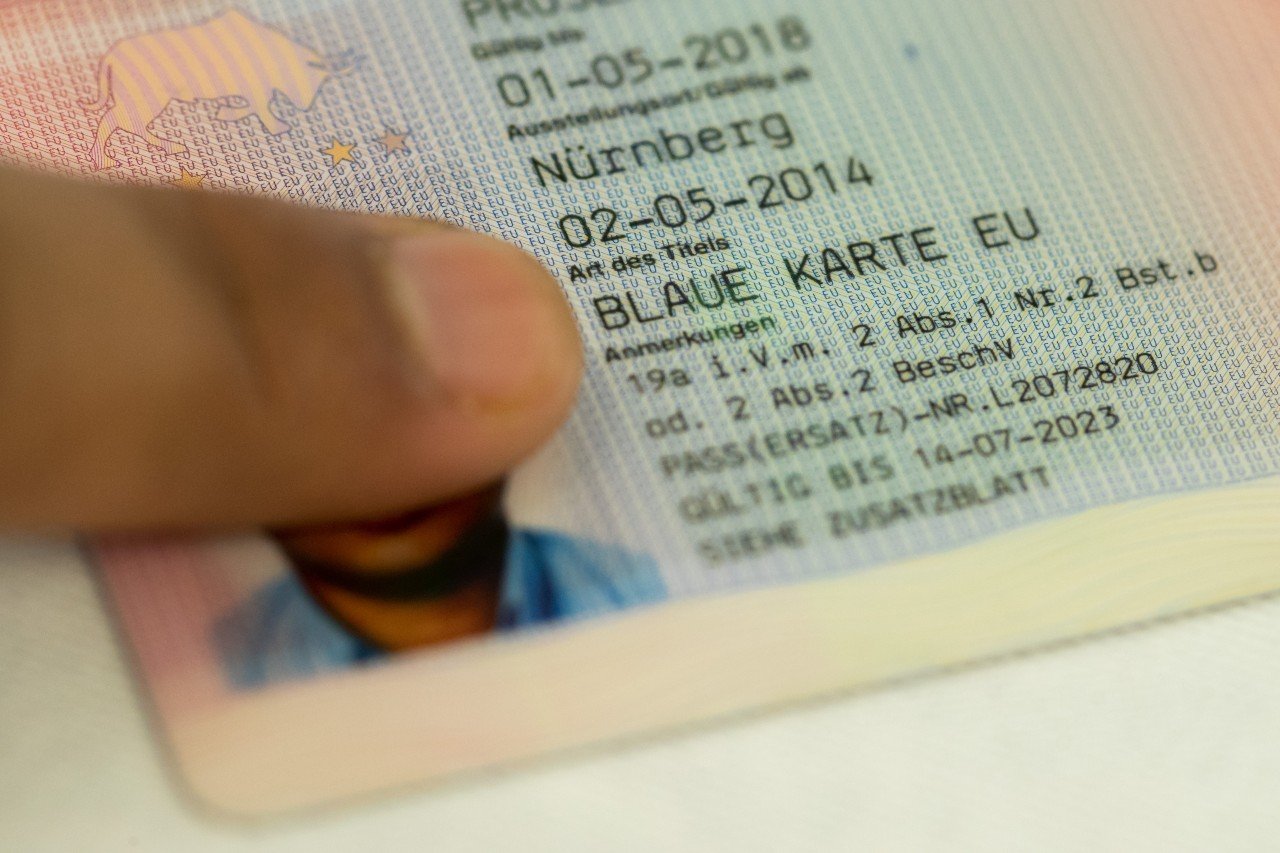Is it better to bring family to Germany through a Blue Card or reunion visa?

Any German resident - whether they're already here or will soon be - can bring family with them. But what is the most beneficial route?
Third-country national Blue Card holders, as well as those with a normal German residency permit (Aufenthaltstitel), can bring family members to Germany with them. The first group can do so automatically for spouses or underage children, whereas the latter group must first apply for a family reunion visa.
For people who arrive on or after March 1st next year, this type of visa will also be available for parents and step-parents.
Which process makes the most sense for you and your family?
If you live in Germany and your family comes from outside the EU
If your spouse is a third-country national, the Blue Card offers particularly big benefits - and Germany hands out around 70 percent of all Blue Cards within the EU.
Holders of the coveted card are allowed to bring their spouses and children to Germany with fewer restrictions than other types of residency permits, according to Germany’s Foreign Ministry.
For example, the accompanying spouse does not have to speak any German and receives immediate access to the labour market. Those who receive a family reunion visa, however, will need to prove basic German skills and go through a potentially longer application process based out of their home country.
READ ALSO: How foreigners will be able to bring their families to Germany under new skilled worker law

An EU Blue Card issued in Nuremberg, Germany. Photo: picture alliance/dpa | Daniel Karmann
Can Blue Card holders also apply for a family reunification visa for relatives?
Under the new rules, if you're an EU Blue Card holder and your family members have already gone through the process of applying for a family reunification visa once, they will no longer have to repeat the arduous process again in Germany.
That's because the families of EU Blue Card holders who lived with them in another member state can use this previous permit to live and work in Germany without applying for a new visa.
In addition, they'll no longer have to prove sufficient living space or the means to support themselves.
READ ALSO: Germany or Austria: Where is it easier to get an EU Blue Card?
Which group receives permanent residency the quickest?
Holders of an Aufenthaltstitel, which those who join family in Germany will receive, qualify for a permanent residence permit (Niederlassungserlaubnis) after an expedited three years only when their partner (or child) is a German citizen. In all other cases, they’ll have to wait at least five years.
But Blue Card holders and in some cases their families, regardless of who they’re married to (or if they’re married at all), can qualify for permanent residency in Germany after 33 months with only a basic A1 Level or 18 months with a B1 level.
In turn, the Blue Card offers the most tangible benefits for spouses and children, but it’s also harder to obtain one. People in sought-after professions like mathematics, healthcare and IT will get by with a salary of €39,682.80, while all other workers have to earn more than €43,800 to be eligible.
Residency permit holders simply need to prove that they're able to financially support the incoming family member - even if through a much smaller annual income.
How do I apply for a Blue Card?
Either you or your employer can fill out the application for the Blue Card, and the documents can be submitted to the foreigner’s office in Germany or your embassy abroad if you come from a country which requires a visa to enter the country.
Nationals of Australia, Canada, Israel, Japan, South Korea, New Zealand, US and the UK are allowed to enter Germany on a three-month tourist visa or visa-waiver programme and then apply. The foreigner’s office states that nations of all other countries - if not already living in Germany on a residence permit - should apply at their home country’s consulate.
READ ALSO: How Germany is making it easier for skilled workers to get an EU Blue Card
In Germany, the time to process an application often only takes days or weeks rather than months as is the case for other types of work permits, according to the EU Blue Card Network.
Comments
See Also
Third-country national Blue Card holders, as well as those with a normal German residency permit (Aufenthaltstitel), can bring family members to Germany with them. The first group can do so automatically for spouses or underage children, whereas the latter group must first apply for a family reunion visa.
For people who arrive on or after March 1st next year, this type of visa will also be available for parents and step-parents.
Which process makes the most sense for you and your family?
If you live in Germany and your family comes from outside the EU
If your spouse is a third-country national, the Blue Card offers particularly big benefits - and Germany hands out around 70 percent of all Blue Cards within the EU.
Holders of the coveted card are allowed to bring their spouses and children to Germany with fewer restrictions than other types of residency permits, according to Germany’s Foreign Ministry.
For example, the accompanying spouse does not have to speak any German and receives immediate access to the labour market. Those who receive a family reunion visa, however, will need to prove basic German skills and go through a potentially longer application process based out of their home country.
READ ALSO: How foreigners will be able to bring their families to Germany under new skilled worker law

Can Blue Card holders also apply for a family reunification visa for relatives?
Under the new rules, if you're an EU Blue Card holder and your family members have already gone through the process of applying for a family reunification visa once, they will no longer have to repeat the arduous process again in Germany.
That's because the families of EU Blue Card holders who lived with them in another member state can use this previous permit to live and work in Germany without applying for a new visa.
In addition, they'll no longer have to prove sufficient living space or the means to support themselves.
READ ALSO: Germany or Austria: Where is it easier to get an EU Blue Card?
Which group receives permanent residency the quickest?
Holders of an Aufenthaltstitel, which those who join family in Germany will receive, qualify for a permanent residence permit (Niederlassungserlaubnis) after an expedited three years only when their partner (or child) is a German citizen. In all other cases, they’ll have to wait at least five years.
But Blue Card holders and in some cases their families, regardless of who they’re married to (or if they’re married at all), can qualify for permanent residency in Germany after 33 months with only a basic A1 Level or 18 months with a B1 level.
In turn, the Blue Card offers the most tangible benefits for spouses and children, but it’s also harder to obtain one. People in sought-after professions like mathematics, healthcare and IT will get by with a salary of €39,682.80, while all other workers have to earn more than €43,800 to be eligible.
Residency permit holders simply need to prove that they're able to financially support the incoming family member - even if through a much smaller annual income.
How do I apply for a Blue Card?
Either you or your employer can fill out the application for the Blue Card, and the documents can be submitted to the foreigner’s office in Germany or your embassy abroad if you come from a country which requires a visa to enter the country.
Nationals of Australia, Canada, Israel, Japan, South Korea, New Zealand, US and the UK are allowed to enter Germany on a three-month tourist visa or visa-waiver programme and then apply. The foreigner’s office states that nations of all other countries - if not already living in Germany on a residence permit - should apply at their home country’s consulate.
READ ALSO: How Germany is making it easier for skilled workers to get an EU Blue Card
In Germany, the time to process an application often only takes days or weeks rather than months as is the case for other types of work permits, according to the EU Blue Card Network.
Join the conversation in our comments section below. Share your own views and experience and if you have a question or suggestion for our journalists then email us at [email protected].
Please keep comments civil, constructive and on topic – and make sure to read our terms of use before getting involved.
Please log in here to leave a comment.